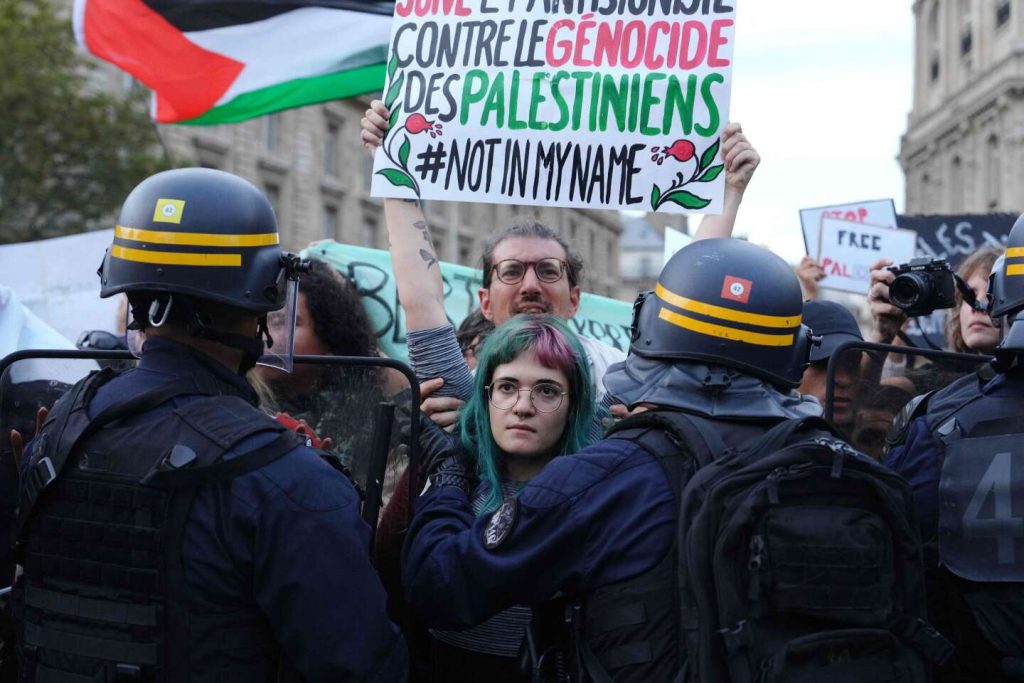Since 2017, there have been more than thirty dissolutions of political groups or associations, multiple bans on protests against pension reforms or in support of Palestine, as well as bans on political meetings such as one held by Jean-Luc Mélenchon in mid-April. There have also been police summons for opposition figures, like Mathilde Panot, president of the La France insoumise group in the National Assembly, for “apology of terrorism.” Additionally, a CGT official was sentenced to a one-year suspended prison sentence for the same offense. Some on the left and far left are questioning whether France is experiencing an authoritarian shift.
Following the terrorist attack by Hamas in Israel on October 7, 2023, and Israel’s subsequent military response, there has been a growing mobilization in support of Gaza. Calls for protests have increased, along with demonstrations in universities. Daily political statements, often controversial, mainly from the left and far left, denounce the risk of “genocide” by Israel. Justice Minister Eric Dupond-Moretti issued a circular on October 10, 2023, calling for a “firm and rapid penal response” to antisemitism and “apology of terrorism,” including statements that praise Hamas attacks as legitimate resistance to Israel.
However, the shift towards repression did not start on October 7. Critics point out that the first signs of limitations on certain freedoms date back to after 2015, following the state of emergency declared after Islamist attacks, and the integration of some measures into common law. Since then, there have been numerous social movements, some resulting in strong police responses. Examples include opposition to the labor law in 2016, the Yellow Vest protests in 2018-2019, protests against the “global security” law in 2021, and against pension reforms in 2023. This period has seen an increase in police violence and a brutalization of law enforcement.
According to Arié Alimi, a lawyer and member of the League of Human Rights (LDH), there has been a shift in the principle of freedom of expression and the right to protest. In the past, freedom was the rule and bans were extremely rare. The situation has now reversed, with more frequent bans and a harsher crackdown on protests. The current climate in France has raised concerns about the erosion of civil liberties and a potential authoritarian turn. The events unfolding in the country have provoked debate and reflection on the state of democracy and fundamental rights.


